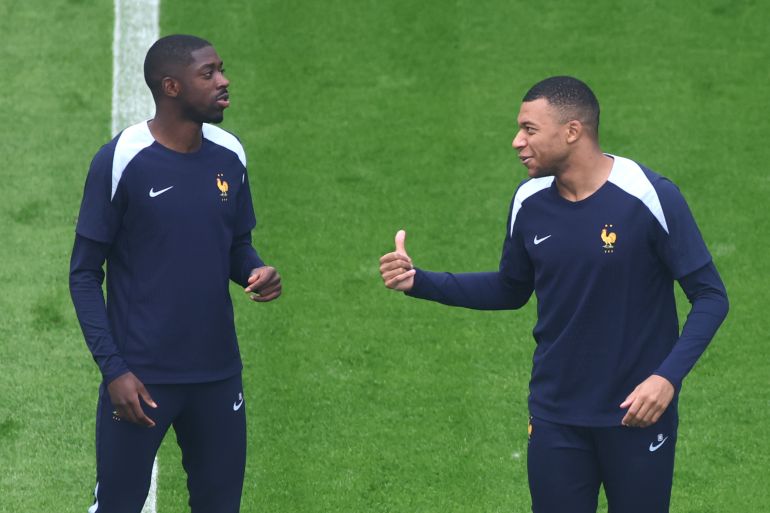The global football stage converges on East Rutherford, New Jersey, for a Club World Cup semifinal featuring two European powerhouses, Real Madrid and Paris Saint-Germain. While a clash of this magnitude inherently carries high stakes and technical intrigue, this particular encounter offers a unique lens through which to view the divergent paths of these clubs, particularly in the context of a certain French forward: Kylian Mbappé.
Just a year ago, the narrative surrounding Mbappé involved his much-anticipated integration into Real Madrid after a storied tenure at PSG. Expectations were monumental, with many predicting immediate silverware. However, the reality has proven more complex. Real Madrid, since Mbappé`s arrival, has grappled with finding tactical cohesion, especially accommodating a star-studded attack. The initial phase under Carlo Ancelotti saw struggles with balance when Mbappé, Vinicius Junior, and Rodrygo shared the pitch – a technical challenge that has persisted.
Enter Xabi Alonso, the new architect tasked with refining Real Madrid`s identity. As Alonso begins to imprint his tactical philosophy, inheriting the challenge of seamlessly integrating top-tier talent remains paramount. Mbappé`s role, surprisingly, has not been one of undisputed central importance from the outset, further complicated by a recent bout of gastroenteritis limiting his participation in the tournament`s early stages. Adding another layer to this evolving picture is the emergence of 21-year-old Gonzalo Garcia, who has seized his opportunities, netting four goals and assisting one in five games, presenting a compelling case for a consistent first-team spot and adding to Alonso`s intricate tactical puzzle.
On the other side of the pitch stands Paris Saint-Germain, a club that has seemingly turned the page with remarkable success since Mbappé`s departure. Under the guidance of Luis Enrique, PSG has undergone a transformation, culminating in a historic treble, including the coveted UEFA Champions League title that eluded them for so long – and ironically, still eludes Mbappé. Enrique`s approach has been to elevate the collective system above individual superstars, a deliberate shift from previous eras that hoarded names like Messi, Neymar, and Mbappé.
Enrique himself articulates this philosophy with a touch of analytical detachment. When questioned about his former star player, his response is concise: “It`s in the past. I don`t have anything else to add.” This pragmatic perspective reflects PSG`s current focus. Their strength lies in an intense, adaptable, attack-oriented system that overwhelms opponents through dynamic wing play and numerical advantage in scoring positions. Players like Khvicha Kvaratskhelia, Joao Neves, and Ousmane Dembélé have flourished within this structure, with Enrique deflecting credit to the players themselves, noting paradoxically, “The less I control, the more chances I have [of] the opponents not knowing what we are going to do.” This systematic unpredictability has made PSG France`s first treble winners and formidable favorites in this tournament.
The contrast between the two sides could not be clearer. PSG arrives as a seemingly complete, stable unit with a defined tactical identity. Real Madrid, under a new manager just weeks into his tenure, is still a work in progress, individually strong but collectively finding its rhythm. This semifinal, therefore, serves as an intriguing “check-in” on the state of affairs for both clubs, particularly highlighting the narrative surrounding Mbappé`s transition – has the grass truly been greener?
Mbappé`s status for the match remains uncertain following his illness, and even if fit, his optimal role within Alonso`s developing setup is a key question mark. Can he quickly find his place and impact in a team still figuring out its balance, especially with Garcia`s recent form? The immediate question for Alonso is how to best utilize his star forward in a critical match, aiming for the club`s first major trophy since their 2024 Champions League triumph.
Despite the evident differences in their current situations – an established, successful project versus a brand new one – the unpredictable nature of football remains the ultimate arbiter. As Luis Enrique noted, football on the pitch knows nothing of favorites or underdogs, only the performance delivered over 90 or 120 minutes. Small details can indeed tip the balance. This Club World Cup semifinal promises to be a thrilling encounter, not just for the silverware at stake, but for the fascinating technical and narrative layers underlying the confrontation between two titans on fundamentally different trajectories.

